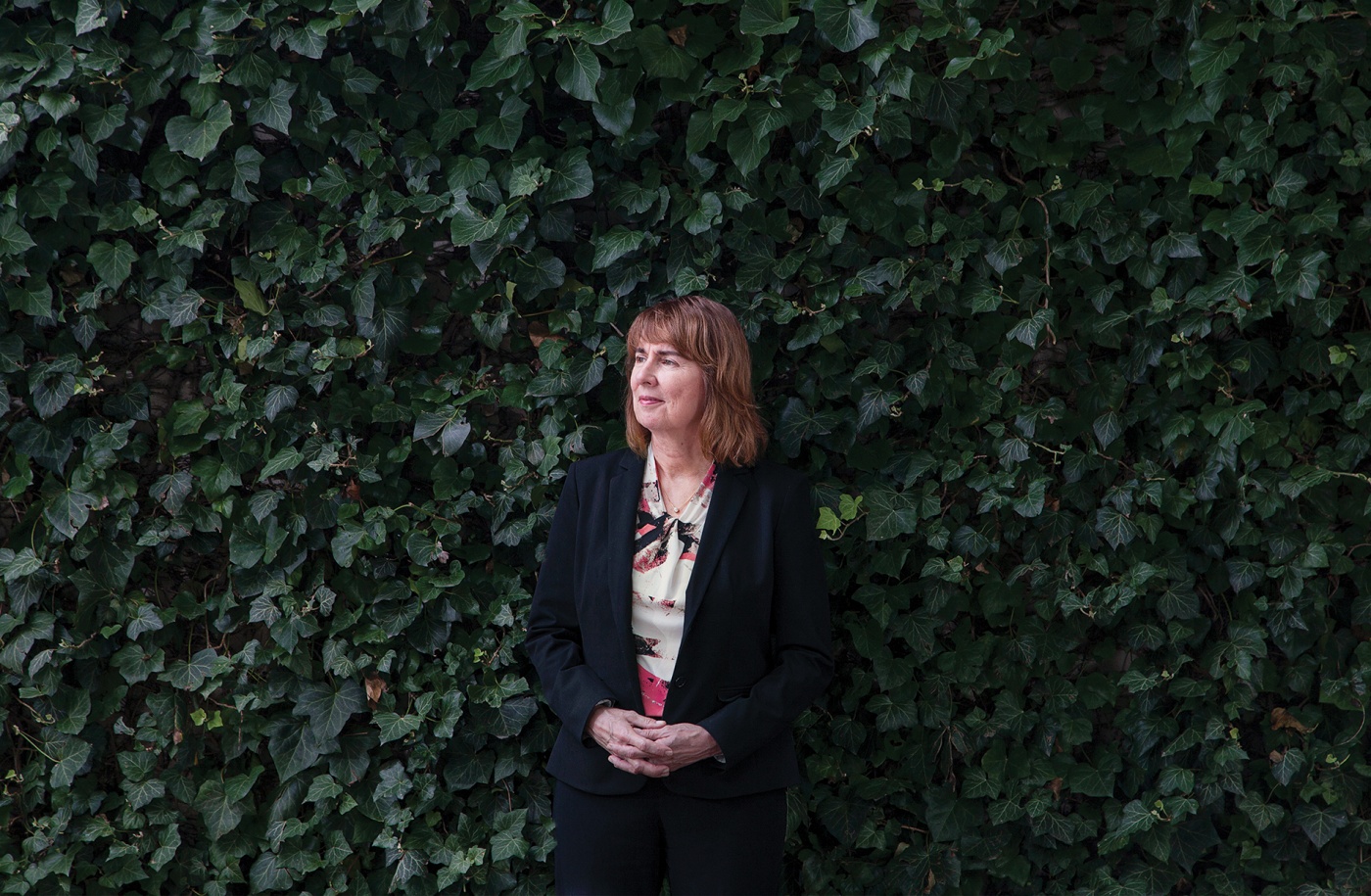President Christina H. Paxson invites Jill Pipher, Brown’s vice president for research, to share her insights on how research at Brown is opening new frontiers.
Lilit Grigoryan ’18 made a remarkable discovery in Professor Laurent Brossay’s lab last year. She identified a marker on a subset of white blood cells that plays a key role in combating viruses, potentially opening a door to the development of novel immune interventions. It was a singular accomplishment for an undergraduate student.
Her experience is remarkable in another way: that she even had the opportunity to work with a world-class professor who treats students as equals.
This generosity in welcoming students to participate in and share credit for research, which I noticed the moment I arrived at Brown, is a defining virtue of Brown’s research culture.
Prospective students or first-year advisees are eager to start doing research with faculty. They are quick to ask about, and now even expect, these kinds of opportunities. The faculty members Brown attracts are equally eager to involve students.
Our focus on research, and on translating that research, is fundamental to Brown’s mission to serve the community, nation, and world by discovering, communicating, and preserving knowledge. Our signature strength—integrating rigorous education with research—ensures that innovative ideas and discoveries cycle back into the classroom and the laboratory, leading to published scholarship or breakthrough solutions.
One example is the pioneering technology developed in Professor Gilad Barnea’s lab, a major step toward mapping specific brain circuitry to functions like memory or behavior. This was achieved over many years with important contributions from undergraduates, some of whom are among the lead authors of a paper published in the journal Neuron.
“Welcoming students to participate in and share credit
for research is a defining virtue of Brown.”
Brown’s generous research culture is an expression of the collaboration we insist upon, which brings multi-disciplinary perspectives, expertise, and
ideas to bear on the most important challenges facing society. Assistant Professors Brenda Rubinstein (in chemistry) and Jacob Rosenstein (in engineering), for example, are advancing the next paradigm in data storage: molecular computing.
This same collaborative ecosystem facilitates private-sector partnerships that open opportunities for translational research. Faculty members learn what problems industry seeks to address, leading to new projects. And corporations that sponsor the research get the solutions they are looking for and discoveries they haven’t even imagined yet.
Solutions that make a difference are a priority at Brown. If Brown researchers see a pathway to a new technology, a vital cure, or an innovative intervention, it is our obligation to help make it possible. Recently, Brown secured two milestone research awards that could have a tremendous impact on public health.
First, we finalized our largest corporate-funded research agreement to date: $2.1 million over three and a half years from Insight Therapeutics to Professor Stefan Gravenstein to test different kinds of influenza vaccines in nursing homes.
Second, the University is buzzing about landing the largest federal award in its history: the extraordinary $53.4 million National Institutes of Health grant that Professor Vincent Mor and his colleagues in the School of Public Health won in September for research on Alzheimer’s patients.
The grant will enable Vince and his collaborators at Hebrew Senior Life to translate their research findings into care-based interventions for people afflicted by dementia. This could potentially mean accelerated development of therapies that improve the quality of life for these individuals.
If we want to make important discoveries and solve societal problems, we need every bright mind working on them. This means making efforts to attract more researchers from historically underrepresented groups, women in STEM fields, and first-generation students. Prioritizing research opportunities for all is imperative.
The sobering reality is that we’re nowhere close to effectively addressing the threats posed by climate change, or containing political upheavals, or understanding how technology is transforming ways of life. Progress won’t be made simply by the passage of time.
But we do know inclusivity, excellence, and collaboration open new frontiers. Research premised on these principles is as essential to finding cures for chronic disease as it is to probing the origins of the universe—and will drive the innovations needed to have impact in the world.






